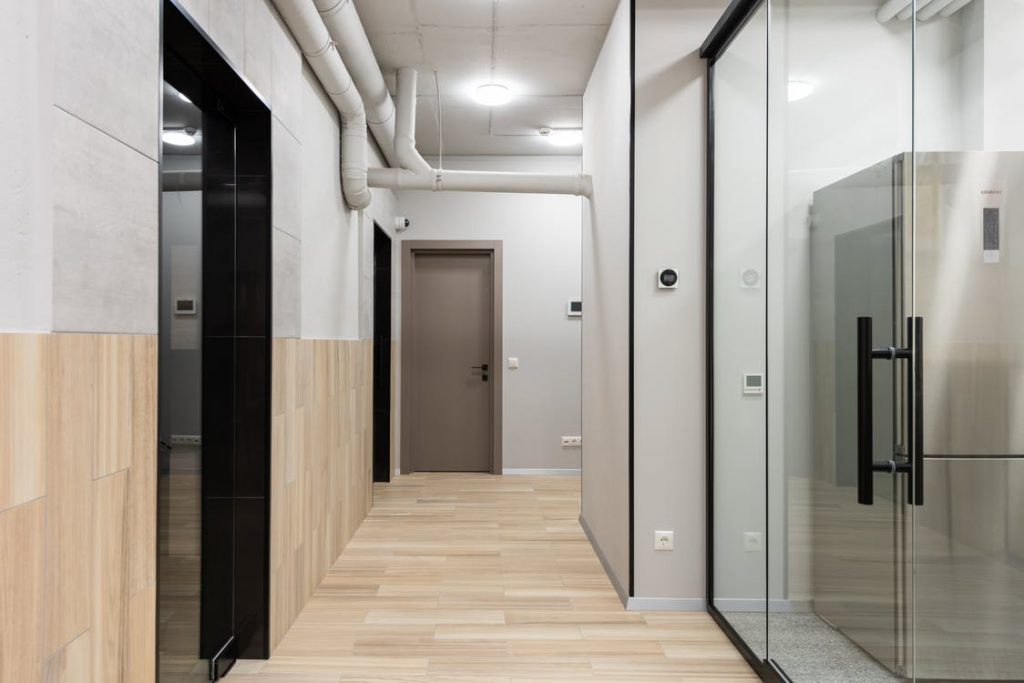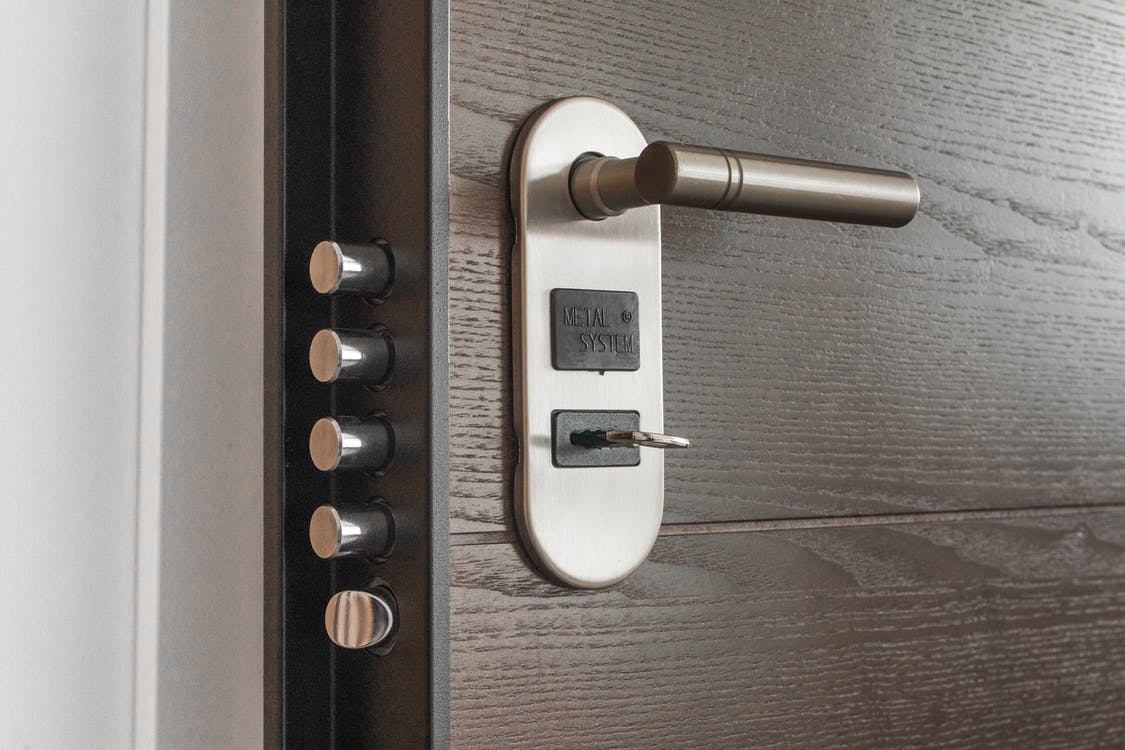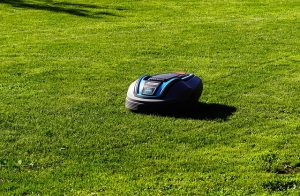Commercial door locks are more complex than standard residential locks, which means more commercial locks are available. Business owners have different reasons for choosing each type of lock, so it’s important to know your options when buying locks for your business. Below are the five most common types of door locks of commercial doors in detail.
Cylindrical Lever Locks
Cylindrical lever locks are a popular choice in commercial applications. These locks have a unique cylinder with a locking lever that extends into a locking mechanism on either side. When you turn each dial to your desired code, an actuator rod retracts and allows you to push open or pull closed. These commercial door lock types are common for exterior doors like front entrances and service entrances since they provide more security than standard knob handles do, plus they come in several different finishes. Cylindrical lever handles also tend to last longer than other types and doesn’t require much maintenance.
Mortise Locks
Mortise locks are commonly used on large commercial doors, and their installation is quite simple. They also come in various styles so that you can match them to your building’s design and architecture. You remove your old lock and insert a mortise lock into the door. Mortise locks offer plenty of protection against break-ins and can be installed quickly by professionals with minimal drilling or cutting required. This makes them ideal for businesses that need access to doors but want to keep intruders while keeping prices low. When buying mortise locks, you should check with your local fire marshal for code compliance before purchasing any product to ensure everything meets state standards.
Keypad Door Locks
Keypad door locks are among the most common commercial door locks used in retail stores, gas stations, drug stores, and other businesses where common theft is a primary concern. Keypad-controlled units are virtually impossible to pick, making them much more secure than standard locks. For additional security, keypad units can be programmed to relock after a set time period automatically—and they also offer an audit trail for recording when keys have been used. As with any commercial door lock, electronic units should be mounted at eye level to make them easy to use while standing at a counter or workstation.

Panic Bars
Perhaps one of the most popular commercial door locks, panic bars, are often used in places where space is an issue. This type of lock is small and sleek, which makes it easy to fit into smaller spaces. It’s also elementary to use; pull down on it when you open or close a door. Because they’re typically set near ground level, they’re handy for both disabled users and guests. But because panic bars are usually affixed near ground level, they are easily bypassed by an intruder who wishes to harm your property or staff. If you use them in place of primary locks or low-traffic areas only, panic bars offer much-needed security at a low cost.
Commercial Electric Strike Locks
Electric strike locks are one of, if not the most popular type of commercial door locks. In residential as well as commercial applications, these locks have a long history. The simplest way to describe them is that they are an electrically controlled deadbolt mechanism. They work by allowing access via electricity to either allow or deny access through your doors. This can be done via direct power or battery-operated power.



